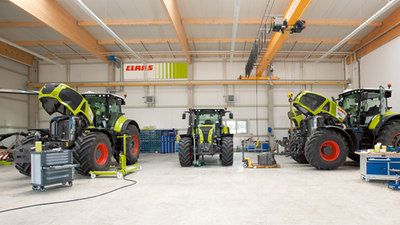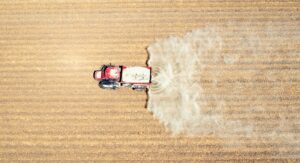Covid-19 is having a huge impact on farmers’ purchasing practices, according to new research from consultancy firm McKinsey & Company.
The survey of financial decision-makers at farms across Europe reveals that 95% of farms are considering adjusting purchasing behaviour to minimize physical interactions in response to the global pandemic.
Digital purchasing may provide the answer, with McKinsey uncovering a 36% increase in both farmers’ desire to use digital channels to make product-purchase decisions (up from 51% in 2019 to 87% post-Covid-19) and their desire to use digital channels to make actual purchases (up from 33% to 69%). Across Europe, that adds up to almost 4 million more farmers who say they are ready to use online channels as their main sources of ordering.
This could prove heartening sentiment to startups building out online agribusiness marketplaces across Europe, such as France’s Agriconomie or Germany’s E-Farm, which resells used agricultural equipment and recently closed its Series A financing round at $5.3 million.
In the report, Nicolas Denis, a partner at McKinsey, says the agricultural sector has “quite low online retail adoption, with only 22% of farmers having made an online purchase over the past 12 months as of May. It is worth noting, though, that this is a large and recent increase over the 13% of farmers who claimed the same last August.”
As attitudes shift in response to the Covid-19 pandemic, he continues, “companies in the agriculture industry have an opportunity to accelerate their online presence, work out omnichannel strategies, and perhaps even change their business models to better meet farmers’ needs. Now is the time to capture it.”
McKinsey estimates the European online farming market to have annual revenues totalling between €150 million and €200 million ($177 million and $236 million). However, this could grow to more than €10 billion ($11.8 billion) by 2025, out of what the firm estimates to be a €138 billion ($163 billion) agricultural input and equipment market.
To capture this opportunity, McKinsey suggests that companies take the following four actions:
- Improve the online experience. 33% of survey respondents complain that it is difficult or impossible to compare products, and 31% say pricing is confusing. Many of the farmers stop their online experience right there. The complaints continue even among those who continue on to purchase, with shared frustrations such as not being able to reach someone 24/7 (64%), difficulty connecting with the right representatives (32%, lack of real-time product availability (35%), and unclear pricing (21%). Companies need to focus on solving the biggest pain points as a matter of priority.
- Focus first on the highest-potential markets. Such markets are those that are large, with big gaps between a stated preference for, and actual, online buying. For example, fruits and vegetables in Spain make up a €17 billion ($20 billion) market in which 38% of respondents say they are willing to buy online – but only 12% do so.
- Target consumers based on their stated propensity to use digital. Farmers who use agritech are almost five times more likely than those who don’t to purchase online. Similarly, those who reorder online are twice as likely as those who don’t to complete first-time purchases online. Companies should prioritize these cohorts and offer them specific digital services, such as bulk discounts, services and security.
- Build trust. Many farmers appear not to trust company websites to provide complete information. While 68% of survey respondents use a company website to identify new products, only 9% use them to compare or evaluate products. However, trust can be built. If farmers have already used a product and trust that it is of high quality, 72% are comfortable reordering the product online. Possible actions to build online trust include ensuring transparent pricing, embedding third-party product comparisons, and integrating university research – perhaps even partnering with universities to provide that information.
“Retailers know very well that building a successful online strategy is complicated. It calls for new practices, the development of more sophisticated data analysis, and the implementation of seamless and cost-effective operations from the warehouse to the buyer,” says Julien Revellat, associate partner at McKinsey.
“But such complexity is no excuse for delay. The Covid-19 crisis has already led to considerable changes in European farmers’ behavior – making the case for acceleration stronger than ever.”
What is your view on digital agribusiness marketplaces in 2020? Let me know at [email protected]





